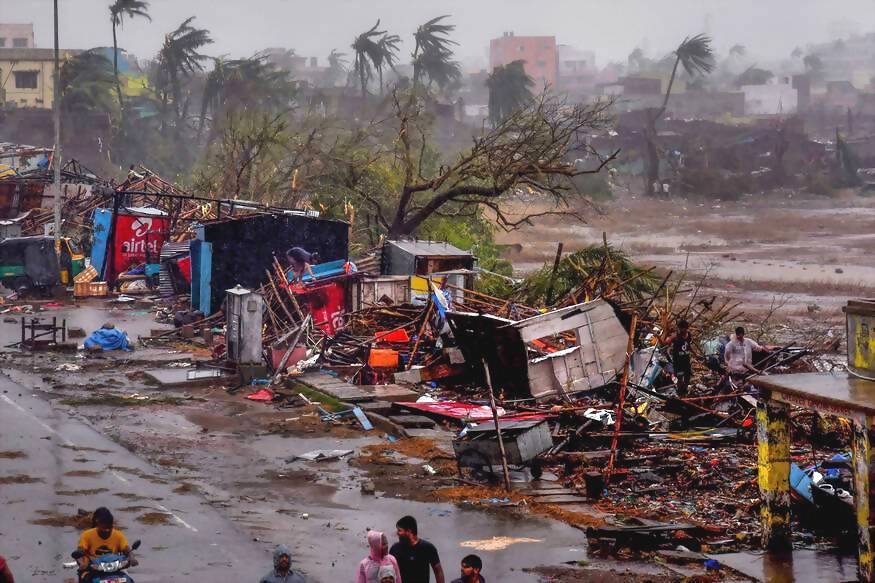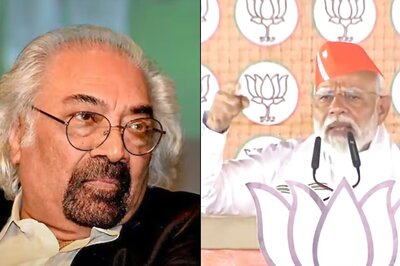
views
It all started when Patnaik, only the third chief minister in India to have won five consecutive terms, bought a coconut from Biswal’s road-side cart in Pipli during an election campaign. Immediately, his sales skyrocketed, as he made it to the front pages of local newspapers. “And then super cyclone Fani happened," says Biswal.
May 3, 2019. Fani was the strongest tropical cyclone to strike Odisha since the 1999 cyclone. Winds with speeds upwards of 200 kilometre per hour ravaged the coastal state. At least 72 people were killed in India, of which 64 were in Odisha. The state was lauded, internationally, for its preparedness, which greatly reduced the damages incurred (almost 10,000 people were killed in India during the 1999 cyclone), but that was only one half of the story.
"More than 50 per cent of the total coconut production was adversely affected. To give you a figure, almost 14 lakh coconut trees were damaged," said Naba Kishore Tad, deputy director of horticulture in Odisha's Puri district where 11.59 lakh coconut trees were damaged. Close to 1.96 lakh were uprooted in Khurda district. In Jajpur district, 14,910 coconut trees fell. Odisha is among the top five coconut producing states of India. Coconut trade forms a mainstay of the state’s economy. On August 6, Patnaik had said that Odisha suffered losses amounting to Rs 24,176 crore due to the cyclone.
Experts, like Preeti Tewari, an associate professor of geography at the University of Delhi, admit that things are only going to get worse for the state, which for decades, has been among the most visibly impacted by climate change. "That is only likely to get worse as climate change increases sea surface temperatures and triggers more intense tropical cyclones," she said.
Consider this: the state has been declared disaster-affected for 93 of the last 105 years. Of this, it was affected 50 times by floods, 32 times by drought and 11 times by cyclones. Between 1970 and 1979, two heatwaves swept across the state — the number rose to seven and nine between 1980-89 and 1990-99, respectively.

The destruction caused by Cyclone Fani after its landfall in Puri on May 3
After the 1999 Odisha cyclone which caused massive damage, there were 31 heatwaves between 2000 and 2009, the Indian Meteorological Department (IMD) found.
A recent study titled ‘The Climate Churn: More Rainfall and Drier Days in Store For Odisha’ found that the total number of monsoon days in Odisha which see “heavy to extreme rainfall days” have increased, now accounting for over half the total number of monsoon days.
The number of “dry days are (also) increasing”, found the study, as “light-to-moderate rainfall days and wet days are decreasing”. Its author, tropical meteorologist Uma Charan Mohanty, a visiting professor at the Indian Institute of Technology Bhubaneswar, added, “Between 1891 and 2018, Odisha was hit by close to 110 cyclones."
Another study, released in July this year by scientists from the UK and Ireland, noted that tropical cyclones followed quickly by deadly heatwaves will be a growing threat as global temperatures continue to rise and both have a clear co-relation — with the coastline of Odisha at the most risk.
"Heatwaves are generally an after-effect of a cyclone," said Laxman Singh Rathore, former Director General of IMD and currently Chair of Intergovernmental Board of Climate Services, United Nations. This, farmers in Odisha fear, will be the death knell for the state’s coconut plantations, even as India hopes to continue its position as the largest exporter of coconuts globally, with the trade doubling from Rs 3,975 crore during 2004-14 to Rs 6,448 crore by 2018, as per the Ministry of Agriculture.
"In the blocks of Puri, Kendrapara and Jagatsinghpur, almost 90 per cent of the trees are damaged. For them, it will at least take 2-3 years to completely revive or regenerate. The damage is immense," said Naba Kishore Tad, Deputy Director of Horticulture in Odisha's Puri. The 2017 crop season saw a 10.38 percent decline in the annual production, found the Coconut Board of India, a statutory body under the Union Agriculture Ministry.
This year, however, the decline is unprecedented. According to Kamal Kumar Acharva, CEO of Regulated Market Committee under Odisha Agricultural Marketing Board, "Before the storm, roughly 90,000 to 1 lakh coconuts used to arrive from all over the state to Bhubaneswar. Now, it is less than 5,000. Only one or two vehicles are coming as the production has almost completely been destroyed. It will take years to re-cultivate the same quantity."
He added that most of the store-houses have also been damaged. "Farmers are not coming to the mandis. One or two farmers are coming here instead of 60-70 on daily basis," added Acharva.
The situation gets grimmer, as one moves down the production chain, and roughly 30 km from Puri in Baligoradi village. Farmers who relied on coconuts for sustenance have shifted to daily-wage labour.
Ashutos, a young farmer in the village, while talking to News18 said, "Each and every coconut tree of ours was uprooted. We were left with only our old stock."
Several farmers in the area expressed collective concern of a bleak future. "A coconut tree takes 4-5 years to fully grow. How do we feed ourselves till then?" asked a local farmer.
Meanwhile, back in Pipli, life for Biswal — the state’s most famous coconut seller — there is no calm in the eye of the storm that he finds himself in. Since the storm, there are no coconuts to sell, he said while preparing to go look for some manual labour work for the day. "Whatever was coming were either the ones plucked before the storm or completely damaged ones. Nobody was buying them, therefore I had shut the shop within a month," said the 48-year-old, the only wage-earner in his family of six.
His income, he said, is nearly half now. "I have three children. If I don't find a way to earn more, I am afraid I will have to ask the eldest one to work," he said.
This story is part of Covering Climate Now, a global collaboration of more than 250 news outlets to strengthen coverage of the climate story.



















Comments
0 comment